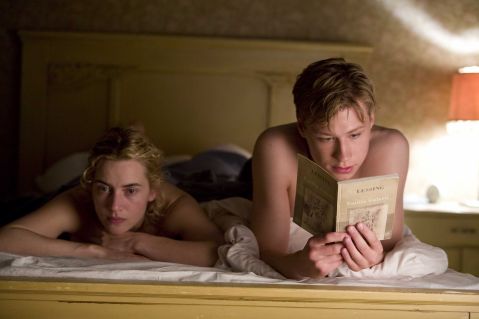The Reader
Kate Winslet and Ralph Fiennes star in a film written by David Hare and directed by Stephen Daldry, based on the novel by Bernhard Schlink.

Although framed as a Holocaust tale, The Reader is most successful as a story of a clandestine relationship, and a lesson about how the young pay for the crimes of their elders – whether those crimes are genocide or the less historically momentous, but probably more commonplace, emotional detachment.
Moving back and forth in time, the narrative follows West German teenager Michael Berg (David Kross), whose affair in 1958 with Hanna Schmitz (Kate Winslet), a tram conductor two decades his senior, will mark him for the rest of his life. Hanna firmly sets the unusual terms of their relationship, including this one: prior to making love, Michael must read to her from classic works of literature ranging from The Odyssey to Huckleberry Finn and, in a rare humorous moment, Lady Chatterley’s Lover. Caught up in the thrill of his sexual awakening, Michael gladly obliges and never considers why it is always he who reads to her. Their affair ends suddenly, when Hanna abruptly disappears from his life without explanation.
Years later, Hanna is in prison for crimes committed while she worked as a concentration camp guard during the war. Michael – who attends her trial as a law student – finally figures out, listening to the testimony, the secret Hanna had always hidden in plain sight, one that she still refuses to reveal in court, even as she readily admits joining the SS and playing a leadership role at the camp that she probably didn’t hold. Nearly a decade after the trial, the adult Michael (Ralph Fiennes) begins to tape himself reading aloud the books he used to read to Hanna, sending the tapes and a player to her in prison. Although the tapes are a way for Michael to relive a past he has never really left behind, they provide a vehicle for Hanna to move forward.
The film suffers from sluggish pacing, and the arguments about morality in Michael’s law class feel artificial. Nonetheless, Kross imbues the young Michael with a convincing vulnerability as he struggles with moral indecision and emotional isolation. Fiennes’s brittle politesse as the adult Michael is probably just right if rather infuriatingly inaccessible. But Winslet is magnificent, weaving all of Hanna’s apparent contradictions into one unforgettably complex character – an uneducated woman who can be moved to tears by epic poetry; who is capable of casual cruelty as well as gruff kindness; who has carefully maintained a deception throughout her life, yet honestly testifies to her Nazi involvement. Whether viewed as villain or victim, Winslet’s Hanna is not unfeeling – even if the emotions are not the ones you think she should have.



